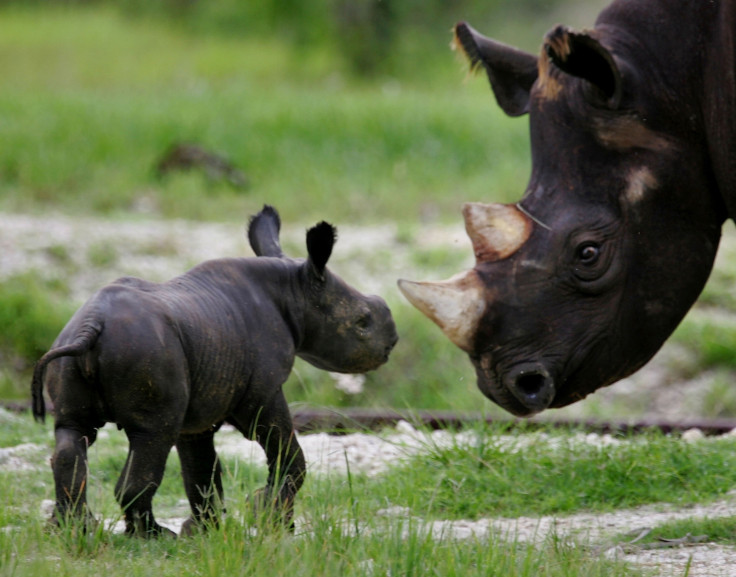South Africa: Pretoria court's lifting of ban on rhino horn trade criticised

A court in Pretoria, South Africa, has lifted a ban on domestic trade of rhino horns. The ban was imposed by the South African government in 2009 to control poaching but now with the new ruling, experts fear incidents of poaching will go up.
The ruling by Judge Francis Legodi in the North Gauteng High Court in Pretoria came after complainant John Hume, a breeder of rhino, blamed increase in rhino poaching on the ban.
"What disastrous implications would be brought about by the immediate lifting of the moratorium? I cannot think of any," Legodi said in a 39-page ruling, blaming the government for not having "properly" consulted the public before imposing the moratorium six years ago, the Associated Press reported.
Legodi justified his ruling saying that the number of rhinos poached in 2008, before the ban, was just below 100, while a total of 1,215 rhinos were killed last year, the worst on record. However, wildlife conservationists beg to differ.
Stupidity of 'Judge' Francis Legodi @MetroUK hope @savetherhino appeals to overturn ruling #bigfivenotbigfour pic.twitter.com/776Epi1xD9
— Hamish Pringle (@HamishPringle) November 27, 2015
@choox75 This is Bloody insane!! The stupid Judge Francis legodi should be ashamed of himself!!
— Beverley Forte (@BevForte) November 26, 2015
According to Tom Milliken of the wildlife trade monitoring network Traffic, the court's decision was an "unwelcome and unnecessary surprise". He said lifting of the ban would result in more of these wild animals being slaughtered for international markets.
"There is no consumer demand for rhino horn in South Africa," Milliken said in a statement. "We remain concerned that this decision potentially re-introduces a channel for illegal trade from Africa to Asia where the real markets for rhino horn lie. That's exactly what happened previously before the ban."
The judgment has drawn criticism from the environment ministry as well which will appeal against Legodi's decision, a move that will allow the ban to stay. "We note that the South African government intends to appeal the judgment against the domestic trade ban that had been judiciously imposed in the face of documented private sector abuse six years ago," Milliken added.
Rhino poaching has rapidly increased in South Africa, home to 80% of the world's rhino population. Rhinos are killed for their horns which is said to have medicinal properties and has high demand in the Asian black market.
© Copyright IBTimes 2025. All rights reserved.






















